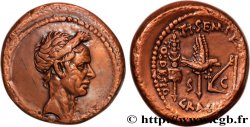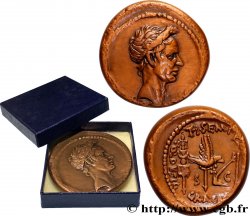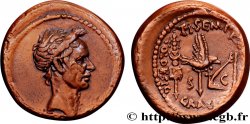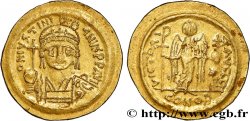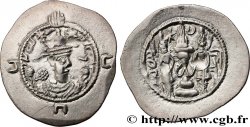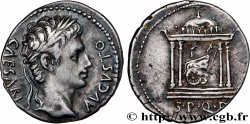Live auction - brm_348468 - JULIUS CAESAR Denier
You must signin and be an approved bidder to bid, LOGIN TO BID. Accounts are subject to approval and the approval process takes place within 48 hours. Do not wait until the day a sale closes to register. Clicking on "BID" constitutes acceptance of the terms of use of cgb.fr private live auctions.
Bids must be placed in whole Euro amounts only. The sale will start closing at the time stated on the item description; any bids received at the site after the closing time will not be executed. Transmission times may vary and bids could be rejected if you wait until the last second. For further information check the Live auction FAQ
All winning bids are subject to a 18% buyer’s fee.
All winning bids are subject to a 18% buyer’s fee.
| Estimate : | 1 500 € |
| Price : | no bid |
| Maximum bid : | no bid |
| End of the sale : | 31 March 2015 14:35:16 |
Type : Denier
Date: 46 AC.
Mint name / Town : Utique
Metal : silver
Millesimal fineness : 950 ‰
Diameter : 18 mm
Orientation dies : 1 h.
Weight : 4,01 g.
Rarity : R1
Coments on the condition:
Exemplaire sur un flan ovale, légèrement décentré au droit sur la légende. Très beau portrait de Cérès, bien venu à la frappe. Joli revers de style fin. Belle patine grise avec des reflets métalliques dorés
Catalogue references :
Predigree :
Cet exemplaire provient de la collection de M. Robert Couet
Obverse
Obverse legend : COS. TERT - DICT. ITER.
Obverse description : Tête de Cérès à droite, portant boucles d'oreille et collier, couronnée d'épis.
Obverse translation : “Consul tertium Dictator iterum”, (Consul pour la troisième fois, Dictateur pour la seconde fois).
Reverse
Reverse legend : AVGVR// PONT. MAX.
Reverse description : Instruments pontificaux : simpulum, aspersoir, vase à sacrifice, et lituus ; dans le champ à droite, M.
Reverse translation : “Augurus Pontifex Maximus”, (Augure, grand pontife).
Commentary
Pour ce type, M. Crawford a relevé une estimation de 123 coins de droit et de 137 coins de revers pour deux variétés (M et D). Le type avec le M pour munus semble moins courant que celui avec le D pour donativum.







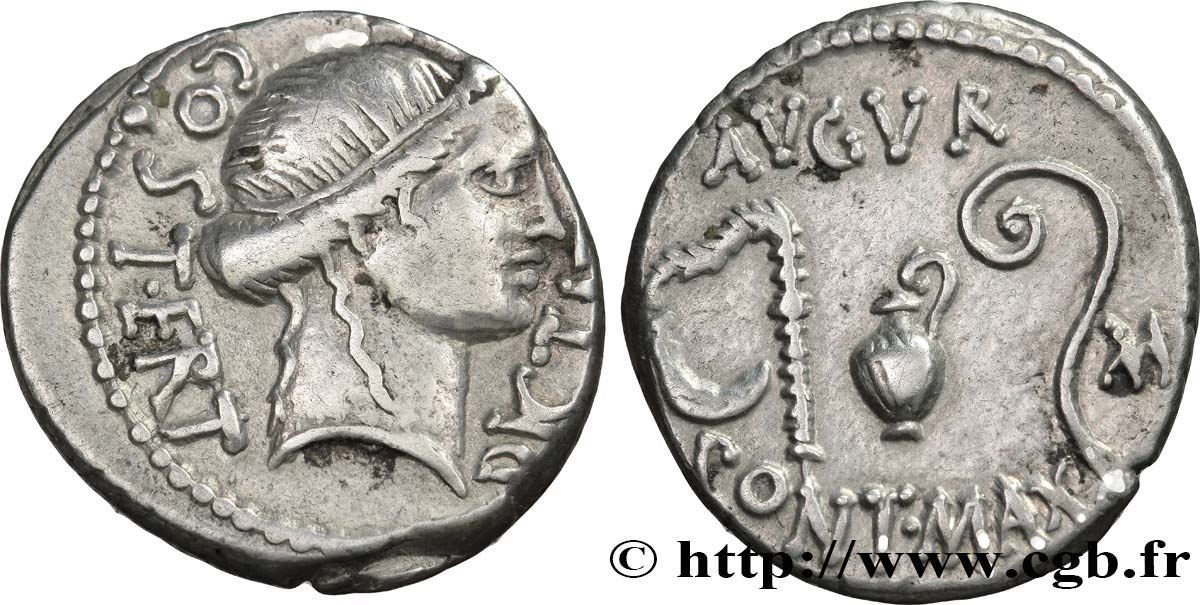
 Report a mistake
Report a mistake Print the page
Print the page Share my selection
Share my selection Ask a question
Ask a question Consign / sell
Consign / sell
 Full data
Full data